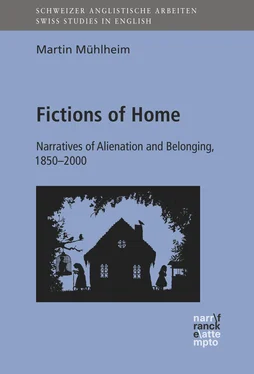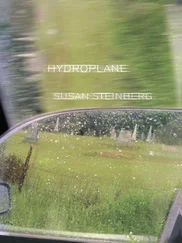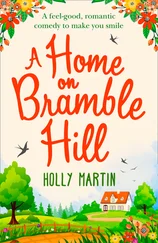Importantly, however, despite these inauspicious circumstances, there are hints in Eliot’s novel that Tom’s educationeducation at Reverend Stelling’s could have initiated a genuine process of BildungBildung. For instance, when Tom realizes that he is unable to master his academic subjects, the boy experiences for the first time that awakening to limitationslimitations that Susan J. RosowskiRosowski, Susan J. sees as typical of female protagonists. Tom had hitherto taken for granted that “all girls were silly” (35; bk. 1, ch. 5), whereas he would, “when he was a man, be master of everything” (111; bk. 2, ch. 1). Now, Tom suddenly suspects that he may be “all wrong somehow” (113), and these doubts nullify “his boyish selfself-satisfaction,” rendering him “more like a girl than he had ever been in his life” (118; bk. 2, ch. 1). However, if it is possible for a boy to become “more like a girl” simply because his education is ill-suited to his talents, then this also suggests that women’s supposedly inferior nature is in fact the product of a societal structure that thwarts rather than fosters their development. Tom’s experience of self-doubt could, we may therefore speculate, have led him to a deeper understanding not only of himself, but also of the constructed nature of gender differencegender difference.
Sadly, however, the seeds of this insight fall on thorny ground, for as Philip FisherFisher, Philip rightly contends, far from making Tom a better human being, his educationeducation ultimately “crushes and obscures his best traits” (540). When Maggie visits Tom at Reverend Stelling’s and enthusiastically proclaims that she could master both Latin and Geometry, Tom finds his own prejudices confirmed rather than challenged by the male teacher:
“Girls can’t do Euclid; can they, sir?”
“They can pick up a little of everything, I dare say,” said Mr. Stelling. “They’ve a great deal of superficial cleverness; but they couldn’t go far into anything. They’re quick and shallow.” (126; bk. 2, ch. 2)
While Tom delights in having his sense of superiority restored, Maggie is understandably dismayed at the thought that her readiness of mind should be the very sign of female inferiority – not least because it seems to confirm her father’s fears that female intelligence can only lead to trouble (16; bk. 1, ch. 3). Indeed, Mr. Tulliver believes that Maggie’s sharp wits compromisecompromise her value as a marriageable commoditycommodities and commodification, for he is certain that she will “fetch none the bigger price” for being clever (12; bk. 1, ch. 2). In this regard, Mr. Tulliver notably agrees with his arch-enemy, lawyerlawyers Wakem, who defines the social role of woman with brutally aphoristic precision: “We don’t ask what a woman does – we ask whom she belongs to” (345; bk. 6, ch. 8) – an undoubtedly accurate statement, given that under the doctrine of coverture married women of the period had no legal identity independent of their husbands (e.g. Griffin 9). Teachers, fathers, and lawyers: where the status of women is concerned, the VictorianVictorian patriarchs in The Mill on the Floss are evidently in perfect agreement. In such an environment, it is little wonder that Tom’s ‘girlish’ selfself-doubts fail in the long run to challenge his beliefbelief in male supremacy, for as Eliot’s narrator suggests in a different context, “we are all apt to believe what the world believes about us” (65; bk. 65, ch. 8).
“Immovable Roots”: BildungBildung and the Limits of Self-Determination
Both Tom and Maggie’s stories thus focus on the problem of inadequate educationeducation. While Tom only reluctantly reconciles “himself to the idea that his schoolschool-time was to be prolonged and that he was not to be brought up to his father’s business” (111; bk. 2, ch. 1), Maggie would be thrilled at the opportunity to stay at Reverend Stelling’s. However, the boy Tom has to stay where he is, while Maggie, because she is a girl, is sent to “Miss Firniss’s boarding school in the ancient town of Laceham on the Floss” (154; bk. 2, ch. 7). The place name “Laceham” provides us with some clues as to the kind of schoolingschool Maggie can expect there: not geometry or Latin, but weaving decorative cloth (‘lace’ and ‘hem’). Significantly, the narrator tells us virtually nothing about Maggie’s time at Miss Firniss’s boarding school – a gap in the story that highlights how irrelevant this type of schoolingschool is for Maggie in terms of BildungBildung (i.e. the development of one’s innate potential).110 Jane McDonnellMcDonnell, Jane notes that unsatisfactory education is in fact a common theme in the BildungsromanBildungsroman , and we could therefore conclude that The Mill on the Floss simply forms part of a larger movement for educational reform, leading to a system of schoolingschool that would allow each individual, irrespective of gender, fully to develop his or her potential for true Bildung .
The story of Philip Wakem intimates, however, that changes in educational policy alone are not sufficient. We have seen that The Mill on the Floss incorporates two related but different Bildungsromane : the ‘female’ story of Maggie, and the ‘male’ story of her increasingly one-dimensional brother Tom. To these two plots, which explore the social inadequacies of institutionalized educationeducation, the story of Philip’s development adds a third narrative, one that is crucial for the novel’s critique of the inherent problems of the ideal of BildungBildung . Importantly, Maggie herself adheres to such a classical ideal of wide-ranging and ‘well-rounded’ intellectual formation, insisting that it is “a sort of clever stupidity only to have one sort of talent.” Philip, however, believes himself “cursed with susceptibility in every direction,” implying that the sheer breadth of his interests merely serves to dilute and disperse his intellectual faculties (266; bk. 5, ch. 3). Moreover, though Philip may be the intellectually most well-rounded individual in Eliot’s novel, his physical “deformitydeformation” marks him as an outsider and makes it impossible for him to feel at home in the communitycommunity of St. Ogg’s (277; bk. 5, ch. 5). In other words, in the case of lawyerlawyers Wakem’s son at least, wide-ranging Bildung does not automatically lead either to personal fulfillment or to social success.
It is significant in this context that Philip does not suffer from a congenital ‘deformitydeformation.’ The fact that Philip’s hump is due to an accident (134; bk. 2, ch. 3) rules out any suspicion, on the part of the readership, that Eliot might have intended Philip as an example of the fearful consequences of hereditaryheredity degenerationdegeneration. Such racialist fears, though not yet widespread in 1860, were nevertheless growing amongst Eliot’s contemporaries (Pick 178–179). If Philip had been born a ‘deformed creature,’ then it would be possible to interpret his failure to succeed in life as a kind of biological or eugenic inevitability. The purely contingentcontingent nature of Philip’s ‘deformitydeformation,’ in contrast, highlights the inherent limits of the notion of selfself-determinationself-determination that lies at the core of ideals of BildungBildung , for if one’s ability to reach an ideal depends just as much on accident as on one’s innate potential, then perhaps the ideal itself is in need of qualification. Put bluntly, we can say that through the story of Philip, Eliot’s novel explores to what extent ‘deformitydeformation’ can render Bildung (in the sense of successful formation) difficult if not impossible. The Mill on the Floss thus complements the twin-narrative of Maggie and Tom’s inadequate Bildung with what we may call Philip’s ‘novel of deformationdeformation.’ In each of these three cases, the mental or spiritual ideal of Bildung is qualified by the problem of embodied existence: sexual difference with Maggie and Tom, and physical disabilitydisability in the case of Philip. In short, Eliot’s novel critiques, or at least questions, Bildung ’s lofty idealismidealism with a sober reminder of bodily limitationslimitations.
Читать дальше












